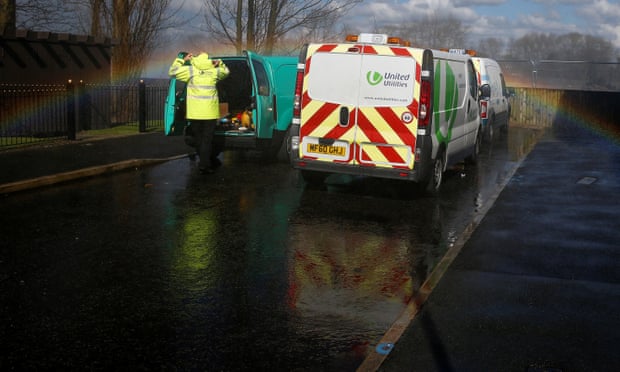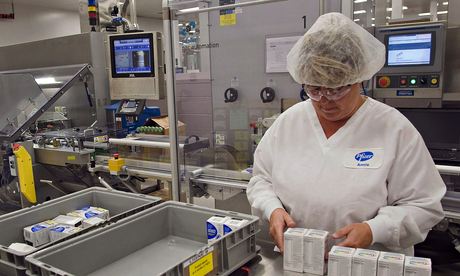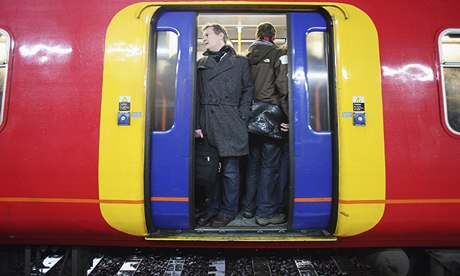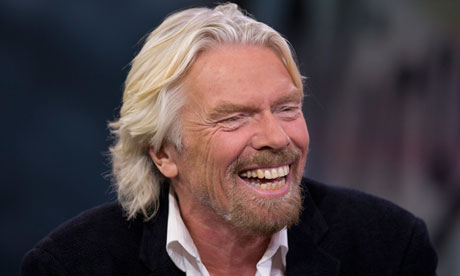
“You could be an H2Owner.” That was the slogan, to the sound of Handel’s Water Music, of the 1989 campaign to sell shares in the 10 water and sewage companies of England and Wales – not quite as memorable as British Gas’s earlier “Tell Sid” campaign, but almost as successful. Although water privatisation was extremely unpopular, with every poll showing that a substantial majority of people were opposed to the policy, that didn’t stop more than 2.5 million people applying for shares. The offer was nearly six times oversubscribed.
The only surprise is that it wasn’t much more. Long before anyone talked about “magic money trees”, the Thatcher government offered one: this was free money to anyone who filled in the application form. The average gain to investors on the first day of trading was 40%, and over the next two decades the privatised water companies paid more than £57bn in dividends, at the same time as running up large amounts of debt, the interest on which is effectively paid for by customers.
So how did we get it so wrong? I mean me, not you. I was a very junior Treasury official working on the water privatisation project, responsible for securing value for money for taxpayers and water consumers. In retrospect, we utterly failed on both counts: the shares were sold well below their value so taxpayers lost out, and consumers have paid through the nose ever since. But this is not just hindsight. We knew what was going on, because water privatisation was never really about efficiency. In the short term, the overriding political priority was a “successful” sale – one where demand for shares was high – and where those who applied and who had, from previous privatisations, already come to expect a large premium, were not disappointed.
That meant that the Treasury’s position, when arguing for a higher share price or for tighter regulation to restrain bills in the future, was exceptionally weak. The National Audit Office report on the sale details how the forecast proceeds fell by more than a third over just three months, costing taxpayers £6bn or so in today’s money, as the Treasury was steamrollered by the combined forces of the water companies’ management, the Department of the Environment, No 10 and a huge army of investment bankers, accountants and PR consultants.
In our (partial) defence, we hoped that this was a one-off transfer of wealth from taxpayers and consumers to shareholders, and that over the longer term, if we got the regulatory structure right, shareholder returns would return to something more like “normal”, as the Office of Water Regulation (Ofwat) found its feet and sought to defend the interest of consumers. But as we now know, we were wrong. Just this morning, the hapless chief executive of Ofwat, David Black, was on the Today programme, claiming that Thames Water was penalised for excessive leaks. It was left to the indefatigable Feargal Sharkey to put the numbers in perspective.
Paradoxically, while the underpricing of the water and sewage companies helped fulfil Thatcher’s short-term goal of a successful sale that was lucrative for those who bought shares, it fatally undermined her long-term goal, which was to create a “shareholding democracy” that would parallel the way right-to-buy created a “property-owning democracy”. The problem was that few small shareholders could resist the temptation to cash out their large profits.
So, as they sold their shares, the companies were bought up, mostly by private equity, institutional investors and large infrastructure firms from abroad. These investors spotted the combination of large investment programmes, effectively guaranteed returns, and a supine and underpowered regulator that lacked access to high-powered economic consultants and lawyers. The result is that companies have been loaded with debt that has permitted huge returns for shareholders. Meanwhile, regulators have allowed returns that have been high or higher than an average risky private company, yet investors have been exposed to no more risk than government bonds. As the Financial Times puts it, 30 years on, “water privatisation looks like little more than an organised rip-off”.
Where next? Here it’s worth engaging with an interesting but deeply self-contradictory defence of the sector by the head of the Centre for Policy Studies, Robert Colvile. He acknowledges upfront that the “water companies are essentially contractors. They are running the water network on behalf of the state, in a fashion agreed with the state, to targets laid down by the state.”
Indeed – so why should directors get million-pound salaries and bonuses? Why should shareholders and bondholders get returns far in excess of those we offer to investors in government debt? His answer to this is that the “single greatest justification for privatisation is competition for capital”; by which he means that if water companies were in the public sector, their investment would be in competition with other priorities, from HS2 to hospitals, and the result, inevitably, would be underinvestment.
This is helpful for two reasons. First, it’s more credible than other defences of privatisation. It doesn’t claim some mythical gains from the magic of competitive markets. Nor is it an economic argument. From a rational perspective, there’s no reason why the government can’t invest as much as is justified by the underlying economics. Instead, Colvile’s argument is political. It implies that governments, especially but not only Conservative ones, pursue stupid, self-defeating policies for short-term political reasons, so it’s worth consumers massively overpaying the private sector to secure the level of investment that is required, even if the public sector could, in theory, do it more cheaply.
Second, this points to a potential way forward that could avoid both the upheaval of renationalisation and the continued reliance on a failed regulatory regime. At the moment, the water companies are simply permanent regulated monopolies. But if those operating the water companies are contractors delivering a public service, why not, as regulatory expert Dieter Helm suggests, treat them as such, and force them to bid competitively for the right to operate? One thing we know for sure is that the current model, where companies face public sector levels of competition and risk, and get private sector levels of profits and return, has long past its sell-by date.



